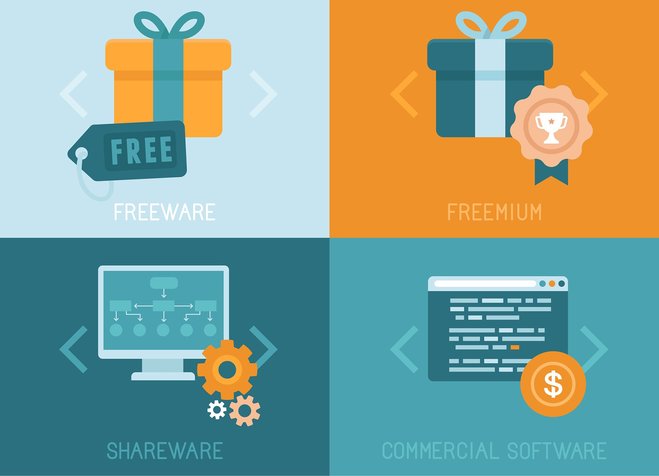Why freeware sometimes doesn’t cut it.
Do you use open source software? If you're running Mozilla Firefox the answer is a clear yes. You are using a modern browser that sees frequent updates and didn't cost you a single cent. What seems unthinkable in other industries is common place in the software industry especially for private users. Good and totally free software made by hobbyists. Programs range from simple chat applications and multimedia suites to entire office bundles. Make no mistake, immense efforts are required to create and maintain such applications!

Why pay for software as a private user?
Let's begin by examining the motives that drive private users to create software and make it freely available to the general public. Apart from the feeling of having done a good deed and the acknowledgment, hobby software projects often serve as a playground to try out new ideas, acquire additional job skills and to be used as a career jump start.
So software projects become a credential for later job applications. But what about the lifespan of such projects? What happens, once a project has served its purpose and its maker has found a new job? Will the application be adjusted to the ever-changing hardware and operating system landscape? What if my camera uses a new RAW format? Who can I turn to for issues/crashes/questions? Do I entrust my personal data with applications that have not seen professional quality assurance?
Factors such as product lifespan should be considered especially with complex applications that require extensive training periods to avoid time-consuming retraining. If you ever tried to learn the intricacies of complex topics such as audio editing, you know what genuine desperation feels like. Not only do software companies follow long-term development strategies but they also provide additional services such as support, consulting and training for their products.
It therefore makes sense to pay and stick with one manufacturer for more demanding tasks such as video editing. This way, not only will the feature set grow with each software update but so will your skill set that ideally evolves in harmony with the software product.

Should you generally prefer commercial software over free applications?
Definitely not. Free applications are the perfect entry into new areas, e.g. image editing. It is this author's firm belief that, to merit its price tag, commercial software must offer superior craftsmanship and stand out against free alternatives in terms of features, ease of use and additional service offerings. In short, commercial software must offer more than free alternatives. Otherwise, it will eventually lose its right to exist.




